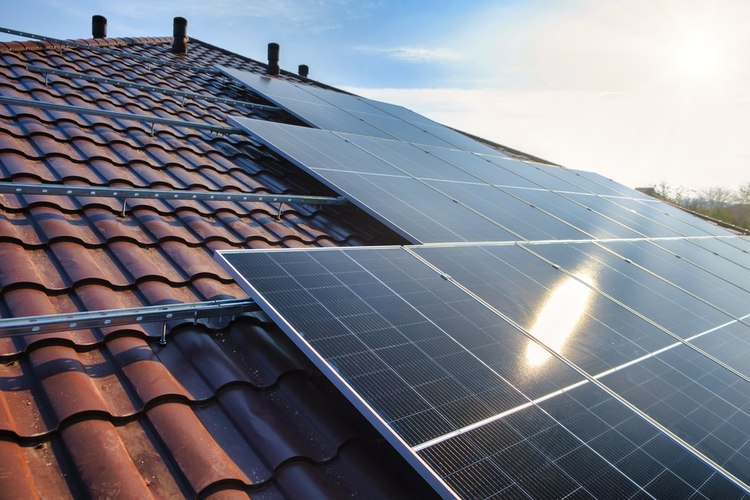Solar-Powered Air Conditioning: Harnessing the Sun for Cool Comfort
A solar air conditioner uses the power of the sun to cool your space, offering an energy-efficient and eco-friendly alternative to traditional systems. Ideal for sunny climates, it helps reduce electricity bills while keeping your home comfortably cool.

How do solar-powered AC units for homes work?
Solar-powered air conditioning systems operate on a simple yet ingenious principle. They use photovoltaic (PV) panels to capture sunlight and convert it into electricity. This clean energy is then used to power the air conditioning unit, which cools the air inside your home. The process begins with solar panels installed on the roof or in a sunny area of your property. These panels absorb sunlight throughout the day, generating direct current (DC) electricity. An inverter converts this DC power into alternating current (AC), which is the type of electricity used by most household appliances, including air conditioners.
What are the main components of Solar Powered Air Conditioning Systems?
A typical solar-powered air conditioning system consists of several key components working together seamlessly:
-
Solar Panels: These are the heart of the system, capturing sunlight and converting it into usable electricity.
-
Inverter: This device converts the DC electricity from solar panels into AC power for the air conditioner.
-
Battery Storage (optional): Some systems include batteries to store excess energy for use during cloudy days or at night.
-
Air Conditioning Unit: A high-efficiency AC unit designed to work with solar power.
-
Smart Controller: This manages the flow of power between the solar panels, battery (if present), and the AC unit.
What Solar Air Conditioner Options are available for homeowners?
Homeowners have several options when it comes to solar air conditioning:
-
Hybrid Solar Air Conditioners: These systems can switch between solar power and grid electricity, ensuring continuous operation regardless of weather conditions.
-
DC Solar Air Conditioners: These units run directly on DC power from solar panels, eliminating the need for an inverter and increasing overall efficiency.
-
Solar-Ready AC Systems: Traditional air conditioners that can be easily integrated with a solar power system.
-
Solar-Assisted Heat Pumps: These versatile systems provide both heating and cooling using solar energy.
What are the Benefits of Solar Air Conditioner systems?
Solar-powered air conditioning offers numerous advantages for homeowners and the environment:
-
Reduced Energy Costs: By utilizing free solar energy, homeowners can significantly lower their electricity bills, especially during peak summer months when AC usage is highest.
-
Environmentally Friendly: Solar AC systems produce zero emissions during operation, helping to reduce your carbon footprint and combat climate change.
-
Energy Independence: With a solar AC system, you’re less reliant on the power grid, providing protection against blackouts and energy price fluctuations.
-
Increased Home Value: Solar installations, including AC systems, can boost your property’s value and appeal to eco-conscious buyers.
-
Government Incentives: Many regions offer tax credits, rebates, or other incentives for installing solar-powered systems, making the initial investment more affordable.
How much do Solar Powered Air Conditioning Systems cost?
The cost of solar-powered air conditioning systems can vary widely depending on factors such as home size, energy requirements, and specific system features. However, we can provide a general pricing guide based on typical benchmarks:
| System Type | Capacity | Estimated Cost Range (GBP) |
|---|---|---|
| Hybrid Solar AC | 1-2 ton | £3,000 - £6,000 |
| DC Solar AC | 1-2 ton | £4,000 - £8,000 |
| Solar-Ready AC | 1-2 ton | £2,000 - £4,000 (plus solar panel costs) |
| Solar-Assisted Heat Pump | 3-5 ton | £7,000 - £15,000 |
Prices, rates, or cost estimates mentioned in this article are based on the latest available information but may change over time. Independent research is advised before making financial decisions.
It’s important to note that while the initial investment may seem substantial, the long-term savings on energy costs can offset this expense over time. Additionally, many homeowners find that the environmental benefits and increased energy independence justify the upfront cost.
Solar-powered air conditioning represents a significant leap forward in home cooling technology. By combining the abundant energy of the sun with efficient cooling systems, homeowners can enjoy comfortable living spaces while reducing their environmental impact and energy costs. As this technology continues to evolve and become more accessible, it’s likely that we’ll see an increasing number of homes adopting solar AC solutions, paving the way for a more sustainable and comfortable future.




